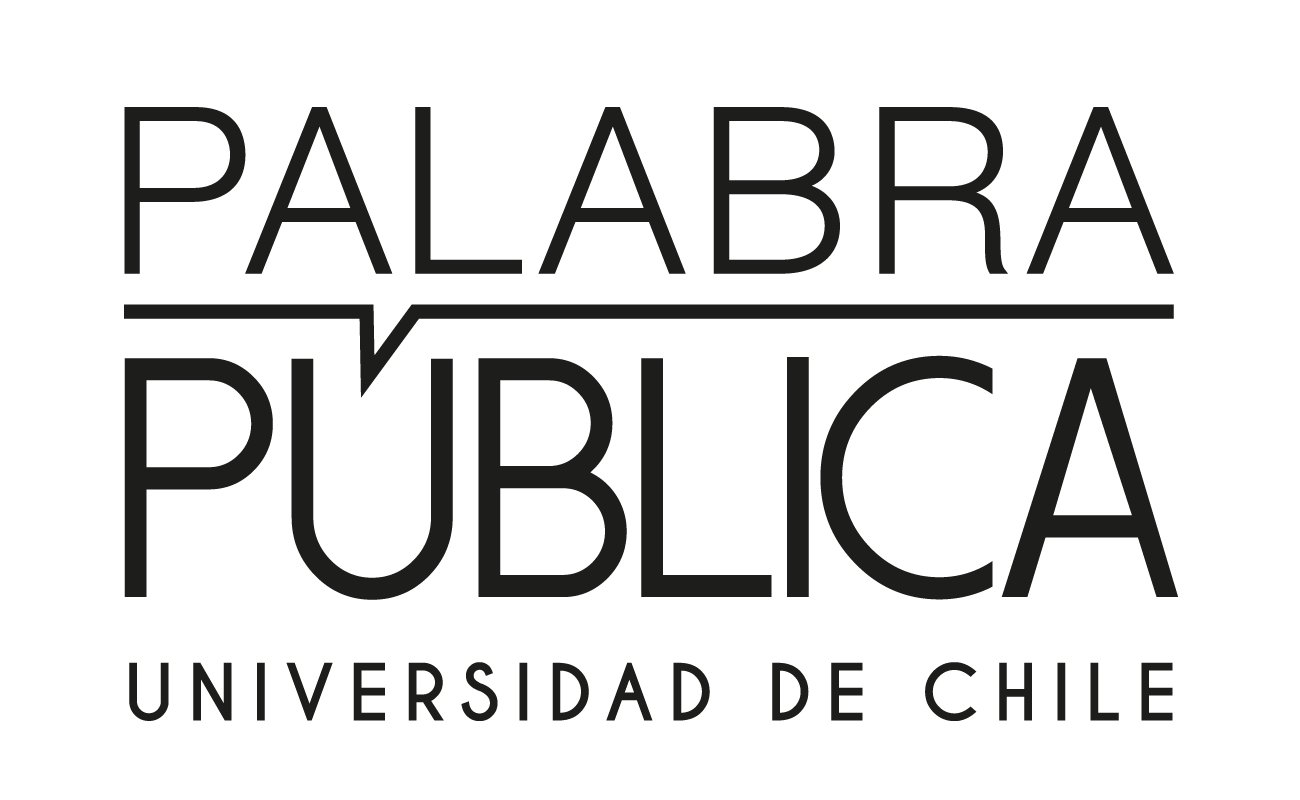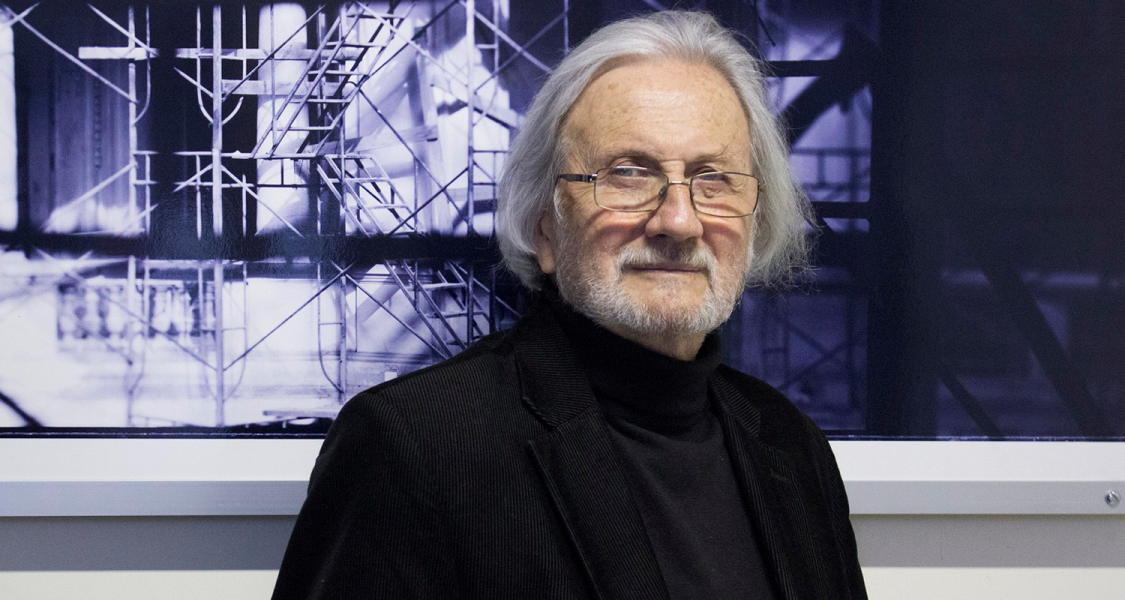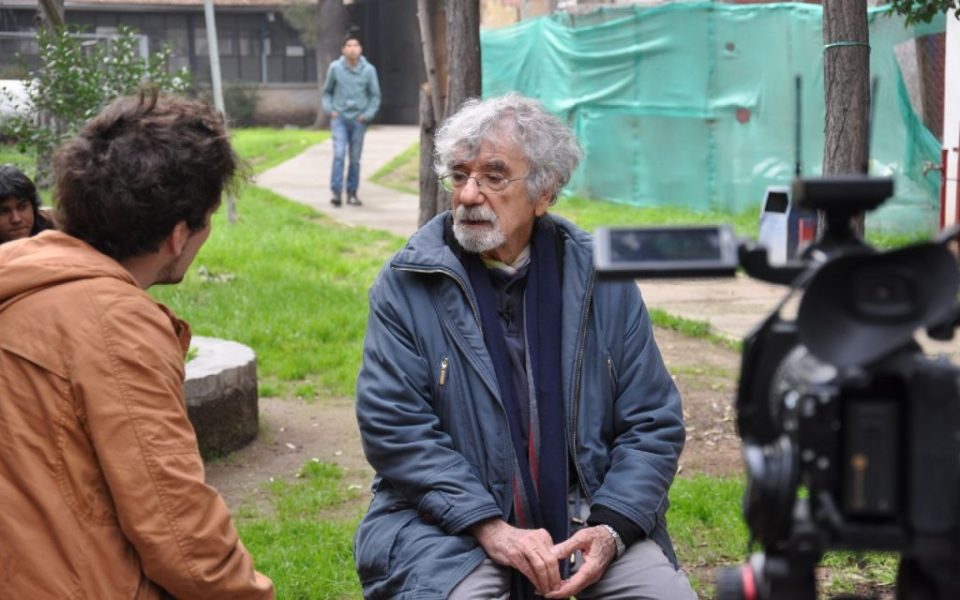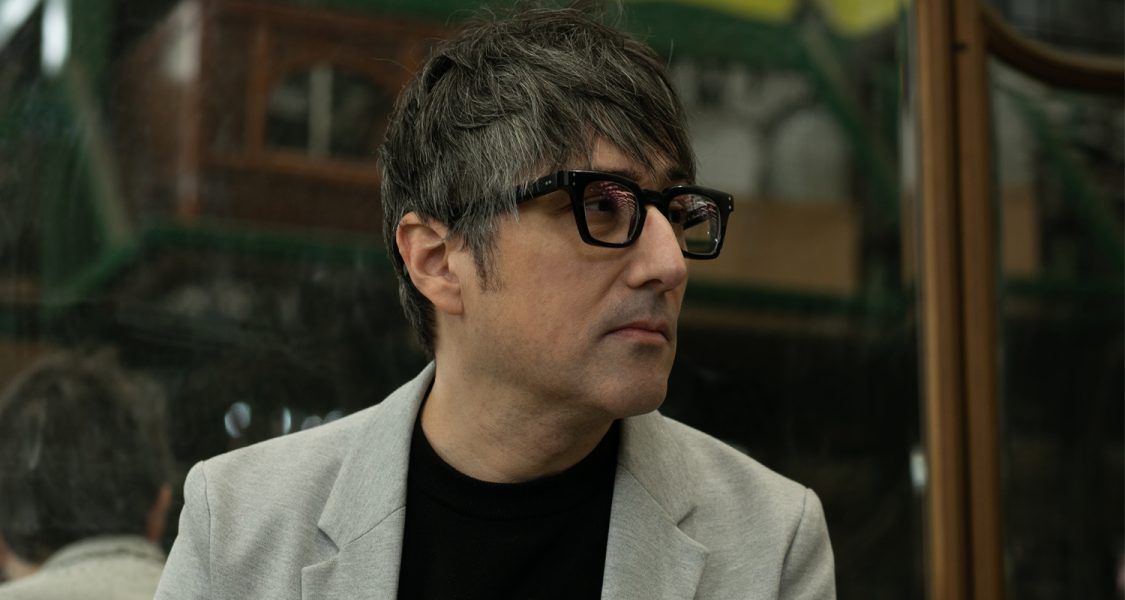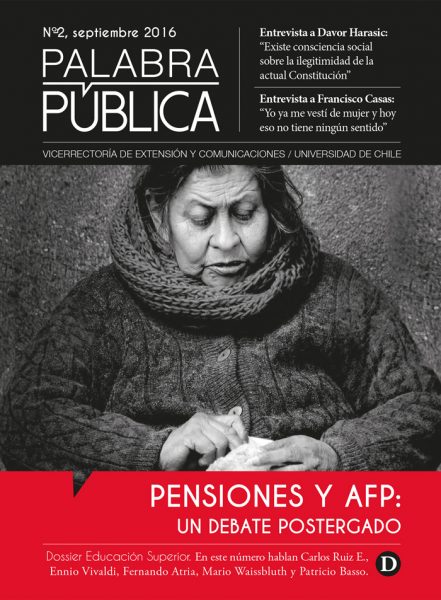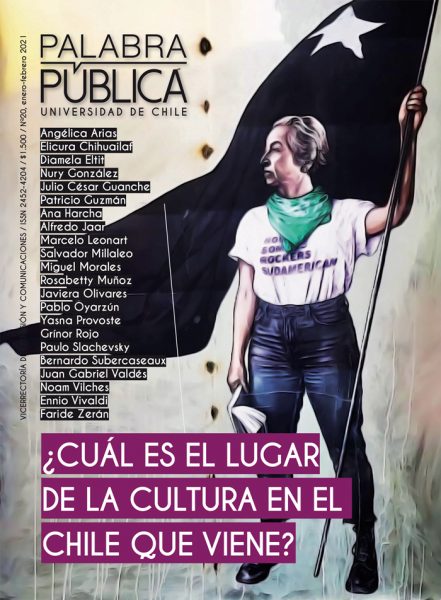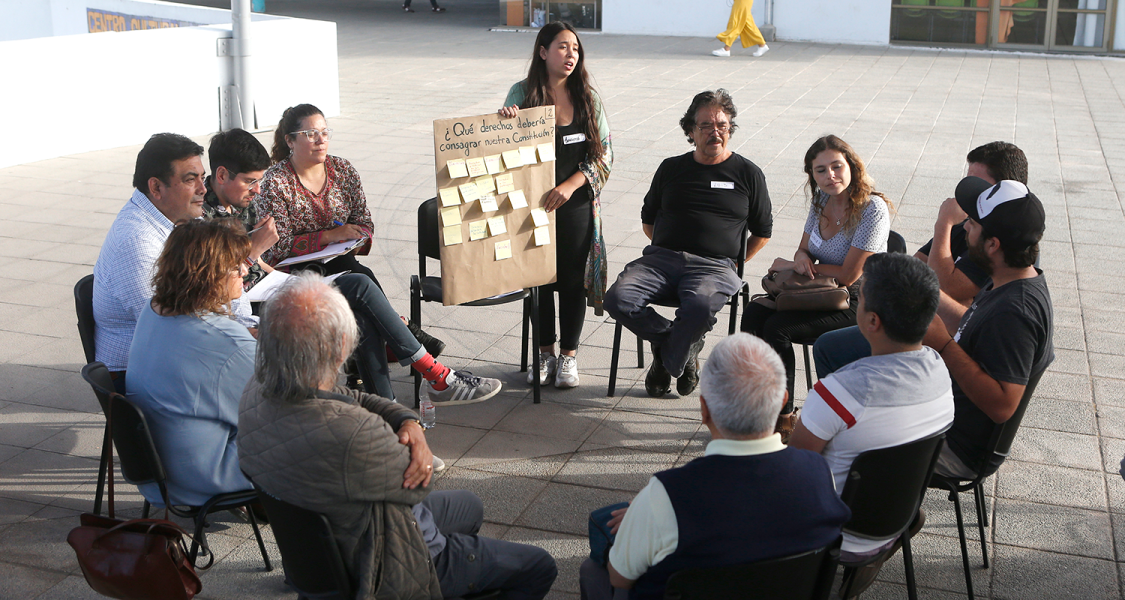One of the organisers of the Southern Ecosocial Pact, an initiative promoting a “socio-ecological transition that articulates social and environmental justice” as a way out of the crisis unleashed by the pandemic. Svampa argues that it is a challenge which demands that we recognise the limits of Latin American progressive political movements in their efforts to overcome the installation of an extractivist and neo-dependent Latin America on the world scene. We already export commodities, surely we’re not going to start exporting pandemics as well…
By Francisco Figueroa
The question of which direction society should take out of this pandemic isn’t something that Maristella Svampa debates from a position of abstract and isolated erudition. The Argentinian sociologist and researcher at the National Council of Scientific Investigation in Argentina (Conicet) writes from the Latin American perspective and the many achievements and frustrations the continent has experienced throughout its emancipatory struggles. She quotes Celso Furtado, Rita Segato and Manfred Max-Neef, the supporters of dependency and the grassroots feminists, using a wealth of references to conceptualise the conflicts across the region, from the River Atrato in Colombia to the fracking industry in the Argentinian Patagonia.
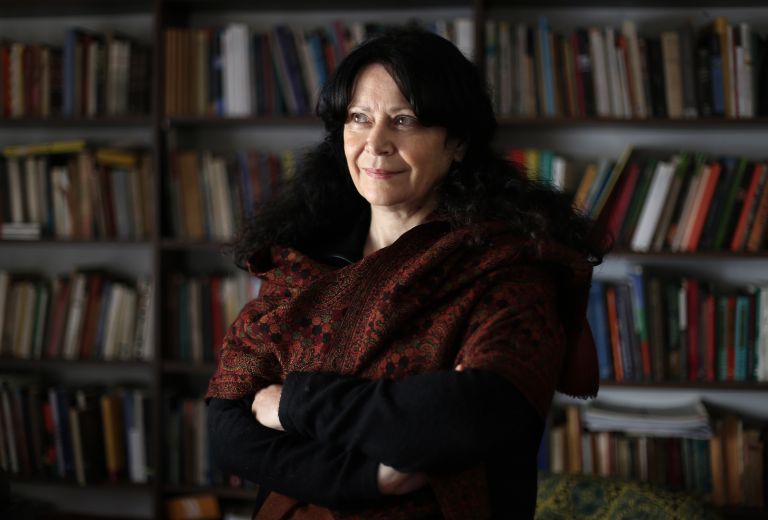
The 568 pages of Debates latinoamericanos. Indianismo, desarrollo, dependencia y populismo (“Latin American Debates. The Indigenous, Development, Dependence and Populism”, 2016) earned her the National Prize for Sociological Essays in Argentina. And with her latest book El colapso ecológico ya llegó. Una brújula para salir del (mal)desarrollo (“Ecological Collapse is Happening. A Compass for Finding Our Way Out of (Mis)Development”, 2020, with Enrique Viale) is an important addition to the conversation about the unsustainability of current models of development. She warns that the socio-ecological transition that countries in the northern hemisphere are pushing towards mustn’t come at the cost of land and dignity in the southern hemisphere.
—What do you mean by misdevelopment? And why do you use this concept and not others from critical discourse, such as neoliberalism or underdevelopment?
It’s a concept that has its own history within critical thinking. It was coined by Celso Furtado when he was no longer such an enthusiastic proponent of the CEPAL, and had become aware of the huge social and territorial inequalities in his country, Brazil. It’s a term that was also used by Vandana Shiva, among others, to signal the many dimensions of the unsustainability of the current dominant models of development. In this line we took up the concept in 2014 (with our book Maldesarrollo. La Argentina del extractivismo y el despojo “Misdevelopment. The Argentina of Extractivism and Plunder”) because, as well as signalling this multidimensionality in order to analyse the impacts of models of development, it seems to us a concept that has a powerful impact. When people read the word “misdevelopment”, they ask themselves what it is.
—Does it imply that it is possible to think in terms of good development?
It isn’t. In the frame of critical and post-development thinking the idea is to leave behind the concept of development and move towards a society that is resilient, solidary and allows for the sustainability of life. In the compendium of Latin American critical thinking there are different concepts that deal with this: neo-extractivism, consensus of commodities, a move towards the eco-territorial. But I’m not interested in speaking only to academics or preaching to the converted, but also in connecting with those sectors that are increasingly aware of socio-environmental issues but that have an epistemic blindness stopping them from questioning the hegemonic models of development.
—Ecuador and Bolivia incorporated wellbeing into their constitutions but both countries developed their extractivist industries. What is the state of this paradigm after the cycle of progressive political movements?
There’s no doubt that the beacon concept of the progressive political cycle was wellbeing, which promotes the communitarian and harmonious relationship between society and nature that indigenous societies strive for. But the concept was starved of all meaning by successive progressive governments. It was also a challenge to give it real substance. I think it didn’t work because it was disassociated from another powerful concept which is the concept of the rights of nature. This is a more complicated concept that’s harder to distort because it implies a relational paradigm that aims to displace the binary paradigm of modernity in which mankind is considered as external to nature, that is the basis for the models of development that we currently follow and for a particular understanding of science, and which is responsible for the ecosystem collapse that we are currently undergoing. Even though Ecuador was the first country to include the rights of nature in its constitution, it’s not been very proactive in the respect of nature. There’s interesting legislation in Colombia, a country that isn’t part of the progressive political movement but that has a rich vein of social movement defending rural and indigenous rights, and a progressive Supreme Court that has just, for example, declared that the River Atrato should be granted rights.
—This is a paradigm that seems to shock not only large multi-national companies but also the expectations of the urban classes. How critical is the tension between potential popular allies in Latin America?
It’s definitely a central issue. A major obstacle for progressive governments in their attempts to undertake transformative measures in development, was the model of inclusion based on the expansion of consumption, that some like to call the “democratisation” of consumption, which is a debate that, to be honest, left-wing progressive movements had no desire to get into. In the seventies, when the Meadows Report came out about the limits of growth, sectors of Latin American critical thinking replied that it was a very centrist perspective and that the problem isn’t scarcity of resources but rather the universalisation of the unsustainable models of consumption. Until that moment the Latin American left-wing had betted on another model of consumption, one which would, in the terms of Max Neef, attend to the needs of all people. But in the heat of neoliberal globalisation, what was adopted globally was an unsustainable model of consumption that demands the constant exploitation of energy and natural resources, which necessarily increasingly despoils lands and the communities that inhabit them. Progressive governments did not promote an alternative economic model but rather reinforced that model, as well as the subordination of Latin American countries in the international process of the division of labour, all of which are extremely short -sighted models. Even though poverty was reduced, the inequality gap widened, especially if we look at the dilemma in terms of concentration of wealth. This leads us to a paradoxical situation because clearly these progressive governments were better and more democratic than other more conservative and neoliberal ones that we have known.
—Feminism is showing an impressive capacity for articulation. Do you see a new “beacon concept” in the ethics of care?
Yes, I’m one of those that promotes the paradigm of cares –and I use the plural after having been corrected by a group of grassroots Colombian feminists– as the basis for the possibility of articulation between social and environmental justice. When we speak about the paradigm of cares we’re talking about the necessity of transforming our relationship with nature into one of a relational cosmovision that places interculturality, reciprocity and interdependence at its centre. And as the feminists of Ecologists in Action say, there are different dimensions. There is the dimension of grassroots feminists focusing on the cycles of life, on ecosystems, on the relationship between bodies-territories-nature. And there’s also the dimension that economic feminists have emphasised: the invisibilisation of work linked to the development and reproduction of social life, which falls on families and within families on women, becoming another vehicle for greater inequality. Having said that, there are still connections to be made between these strands of feminism. There is no emancipatory movement of feminism that doesn’t have a message of defence of the territory and of life as a core message. To be a feminist and not an ecologist is a contradiction in terms these days.
—Given that restarting the economy has now become a priority, will it be more difficult to produce a change of paradigm? Can Latin American thinking contribute in this sense?
The problem for socio-environmental movements is that they require the left-wing to move out of its comfort zone; they need the relationship between society, nature, and models of production to be re-thought. It’s also a question of political loyalties. In Latin America the opposition between the social and the environmental is still at the centre of politics,as though we hadn’t understood the consequences of the commodities boom. It’s urgent that we dismantle this fake dichotomy with a serious and wide-reaching debate. In the selective progressiveness that developed here in Argentina after Kirchnerism there is some room for discussion, but at the same time politicians are talking about reactivating the economy by stimulating the extractivist industries. Here’s an example: There’s going to be a discussion about the imposition of a special tax on large fortunes. What does the government plan to do with the money? Health and education are on the list, but 25% will go to support gas fracking. It’s completely insane, we haven’t learnt anything! Instead of thinking about a political agenda of transitioning away from fossil fuels, of opening a democratic discussion about what on earth we’re doing with lithium, the government is once again placing all its bets on fracking. It’s so discouraging, sometimes you get the feeling that even progressive politicians have learnt absolutely nothing.
—And what do you think about the role of China, the all-important new partner in this region?
Instead of strengthening regional ties, association with China has always been undertaken via bilateral agreements, which have consolidated the structure of new international relationships of dependence. In Latin America and Argentina the Chinese have, above all, invested in the extractivist industries, and in the frame of an asymmetric exchange. Add to this the fact that the Argentinian government, through the Chancellor’s Office, promotes the installation of pig mega farms that will export pork to China. Argentina, in the grips of a zoonotic pandemic, is promoting a model that will have powerful socio-environmental impacts that could play out as future pandemics, and which obeys the need of certain countries to outsource risk by looking for “healthy” territories uninfected by African swine flu. It’s crazy, whichever way you look at it. We’re always chasing the wrong solutions, and that’s very much linked to the concept of misdevelopment.
—Supporters of dependency claimed that dependence produced our dominant middle classes. Is that principle still viable?
Of course, as Teotonio dos Santos and Cardoso said, you have to look at dependence from an internal perspective, in terms of the correlation between social forces and the emergence of a sector of local bourgeoisie that doesn’t put in place autonomous development but rather greater transnational association in order to obtain a place of privilege in the economic structure. Speaking of the national bourgeoisie, here in Argentina we have Hugo Sigman, CEO of a pharmaceutical lab, one of Argentina’s super-rich, who’s culturally progressive, has financed a string of very important films, and whose laboratory was chosen to produce the Oxford-developed vaccine here. But at the same time he promotes the pig mega-farms. So we’re offering a vaccine in the front of the shop, but we’re letting a new pandemic in through the back door. It’s madness.
—The pandemic seems to be giving new strength to a way of living that is more aware of our interdependence, which had already been gaining traction in the region. Do you think that Latin America can be a compass for the world after this pandemic?
I hope so, and I believe that the emancipatory narrative that has developed in Latin America at the heart of eco-territorial, indigenous and feminist struggles, has a lot to contribute to the process of re-thinking possible worlds, based on resilience, democracy, solidarity, and the paradigm of the ethics of care. But at the same time, we don’t have broad enough shoulders to really face the challenges that this re-thinking presents us with. We’re not Europe, there’s no central bank here in Latin America that’s promoting tributary reform or a universal income; there’s almost no funding and the individual countries are alone in facing a devastating situation. So if there’s no move at an international level towards such a transition, then it’s practically impossible for us to open up that agenda ourselves. What could happen is that Europe turns to an increasingly socio-ecological transition but that in Latin America we continue to contaminate the lands and oppress the local populations in order to finance that transition of the northern-hemisphere countries. Our eco-territorial experiences and languages would be left as witnesses to the process. That’s the danger that I foresee.
—In your last book you mention the 2019 uprisings in Chile as a source of inspiration. How do you interpret what happened in Chile last October?
Rita Segato writes that this is a world of owners, of dominion, in which the word inequality is inadequate. Rita’s right, and Chile shows it in a quite striking way: Chile is a country of owners. In 2019 Forbes magazine published a list of the richest people in the world and it included ten Chilean families. What happened in Chile last October moved us for several reasons: it revealed the incredible process of cognitive liberation of the masses who questioned a country of owners in a world of owners that is increasingly unbearable and unsustainable. It immediately became part of the cycle of struggles across Latin America, adding novelty by virtue of its intersectionality, the graffiti, the murals, the tearing down of monuments – so many new things. I don’t think that Chile is moving towards a process of cognitive closing down; the conditions are there for the process of change to be strengthened by the writing of the new constitution which really could engender a new social pact, a reorganisation and a new impulse for society.
